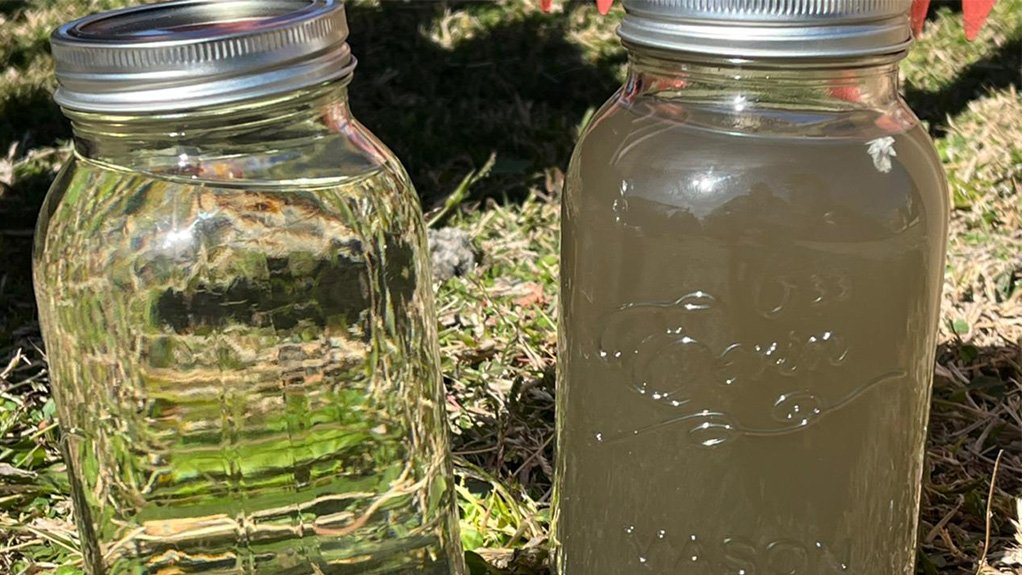Decentralised sewage treatment would bolster South Africa’s fight against water pollution
The supply of clean drinkable water owing to water scarcity and the contamination of water bodies is the next big threat to the South African public, says energy, pumping and filtration technologies and projects group EPF Systems director Cobus Raubenheimer.
With no substitution for the supply of water and millions of people potentially facing a lack of access to clean drinking water, the imminent water crisis is a greater threat than the energy crisis currently being faced by South Africa.
“The energy problems in South Africa are clearly visible, with several companies throwing their weight behind possible solutions to not only make a profit, but to also alleviate the loadshedding we experiencing,” he says in a statement sent to Engineering News.
However, contrary to “quick-fix” electricity plans, including solar photovoltaic panels, diesel generators and wind which provide short-term alternatives for disruption in power, the distribution and the purification of water is more complicated.
“Apart from the supply of clean water using the existing water distribution infrastructure that cannot operate without power, the other great threat is the pollution of existing water bodies through the dumping of untreated sewage into our dams and rivers,” he says, noting that the challenge, which started a number of years ago, has reached “massive, almost incomprehensible scale”, with an economic threat reaching into the multibillions of rands.
However, technological advancements have reduced costs and simplified the purification process, with modern packaged plant technology enabling a halving of the R50-million to R60-million costs to establish a traditional three-million-litre-a-day wastewater treatment plant.
Conventional wastewater treatment systems, relying on bio processes and clarifiers, take a long time to construct; require intensive skilled management if they are to work properly; and are costly to repair owing to a lack of maintenance, vandalism or flooding, besides others.
With modern cheaper, scalable and more simplistic wastewater treatment designs available, he says it is time to consider a different and better wastewater treatment model which can work for South Africa.
He cites an example of the 44 pumps stations across the Vaal catchment area which need to pump sewage to the large wastewater treatment plants.
“With modern technology, it is possible to filter raw sewage at these pump stations, resulting in 80% to 90% of the volume being clean enough to meet the requirement for release into the river systems, and then only having to pump the remaining sludge to the wastewater plants,” explains Raubenheimer.
“This will not only alleviate the capacity problems of the three large wastewater treatment plants, but will also save hundreds of thousands, if not millions, of rands’ pumping energy costs.”
Further, he says, in addition to the crisis in the Vaal basin, the beaches from Durban to Umhlanga to Umdloti in KwaZulu-Natal are closed owing to high concentrations of e-coli in the sea water, arriving from the rivers in the area.
“Instead of trying to pump all the sewage to a few large wastewater treatment plants, a decentralised strategy of filtering out the harmless water from the sewage and only pumping the remaining sewage away for further treatment again will save hundreds of thousands in pumping costs, but more importantly it will prevent hundreds of millions of potential losses if the tourism industry declines because of swimming restrictions on beaches of KwaZulu-Natal.”
He cites measures which can be taken relatively easily and quickly to clean up sewage before it enters the river systems, including the successful trials of the EPF-developed filtration systems that can be quickly installed in sewage pump stations as they are mechanical systems that do not require a large civil construction.
These are relatively inexpensive, have simple process control and are easy to monitor remotely 24/7, as well as able to filter raw sewage, allowing discharge of 90% of the input safely into river systems; and leaves only 10% to be sent for treatment in conventional plants.
Comments
Press Office
Announcements
What's On
Subscribe to improve your user experience...
Option 1 (equivalent of R125 a month):
Receive a weekly copy of Creamer Media's Engineering News & Mining Weekly magazine
(print copy for those in South Africa and e-magazine for those outside of South Africa)
Receive daily email newsletters
Access to full search results
Access archive of magazine back copies
Access to Projects in Progress
Access to ONE Research Report of your choice in PDF format
Option 2 (equivalent of R375 a month):
All benefits from Option 1
PLUS
Access to Creamer Media's Research Channel Africa for ALL Research Reports, in PDF format, on various industrial and mining sectors
including Electricity; Water; Energy Transition; Hydrogen; Roads, Rail and Ports; Coal; Gold; Platinum; Battery Metals; etc.
Already a subscriber?
Forgotten your password?
Receive weekly copy of Creamer Media's Engineering News & Mining Weekly magazine (print copy for those in South Africa and e-magazine for those outside of South Africa)
➕
Recieve daily email newsletters
➕
Access to full search results
➕
Access archive of magazine back copies
➕
Access to Projects in Progress
➕
Access to ONE Research Report of your choice in PDF format
RESEARCH CHANNEL AFRICA
R4500 (equivalent of R375 a month)
SUBSCRIBEAll benefits from Option 1
➕
Access to Creamer Media's Research Channel Africa for ALL Research Reports on various industrial and mining sectors, in PDF format, including on:
Electricity
➕
Water
➕
Energy Transition
➕
Hydrogen
➕
Roads, Rail and Ports
➕
Coal
➕
Gold
➕
Platinum
➕
Battery Metals
➕
etc.
Receive all benefits from Option 1 or Option 2 delivered to numerous people at your company
➕
Multiple User names and Passwords for simultaneous log-ins
➕
Intranet integration access to all in your organisation



















